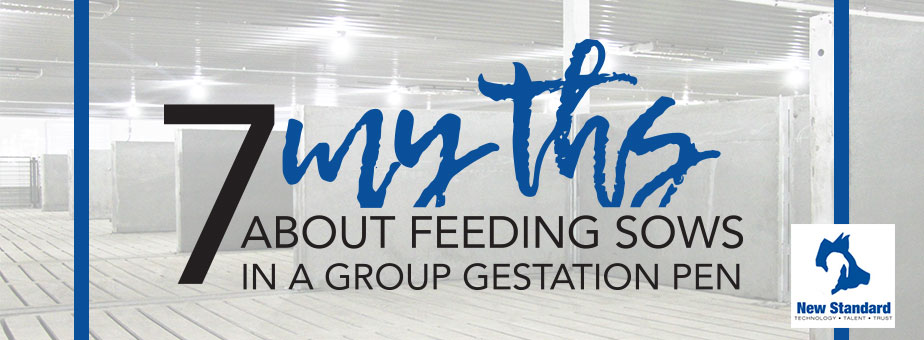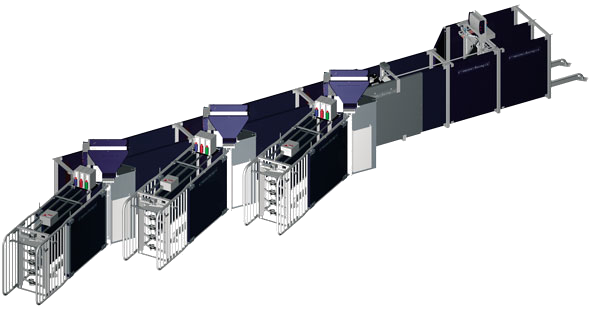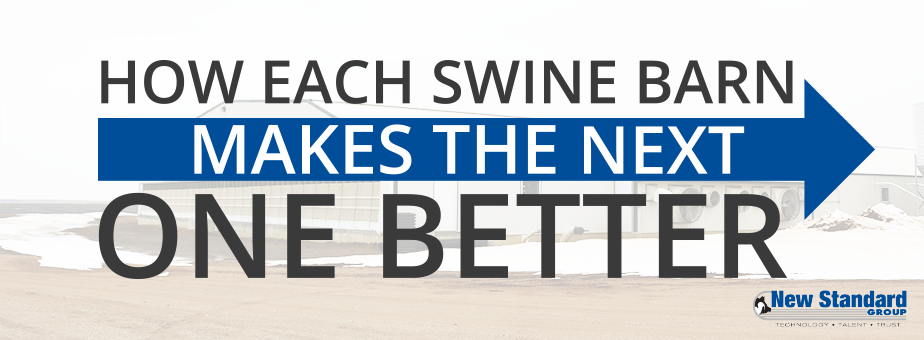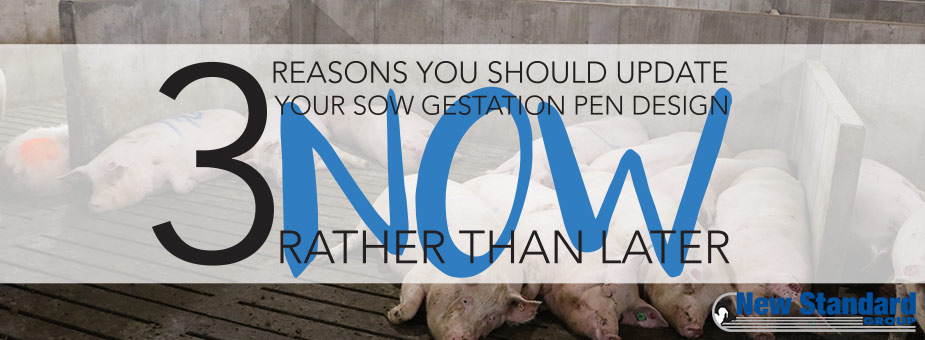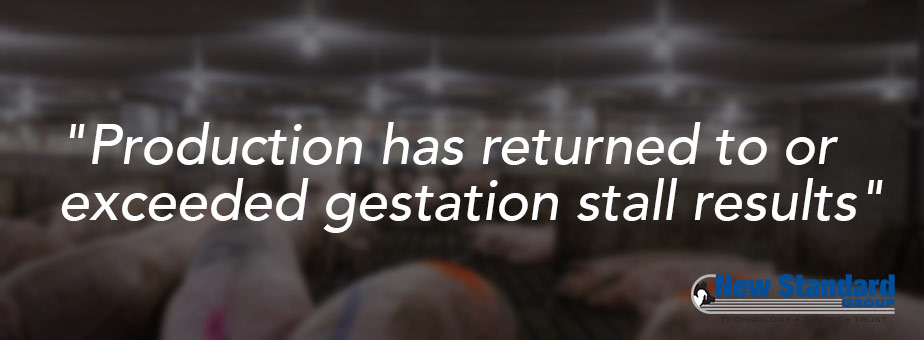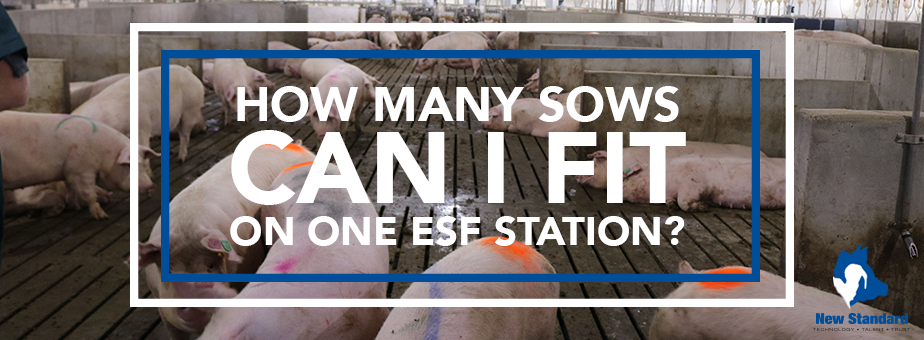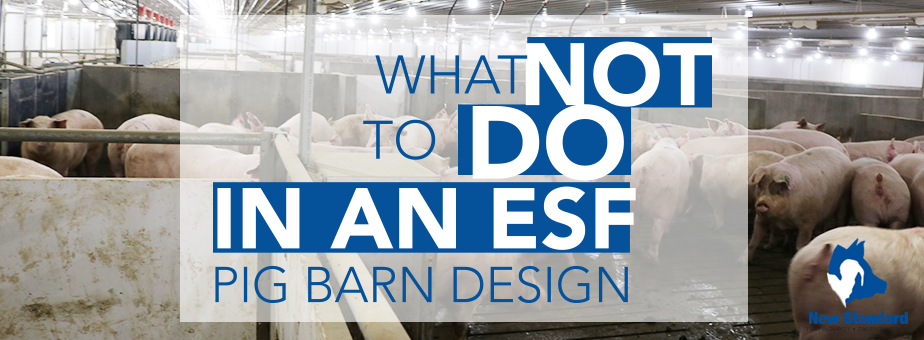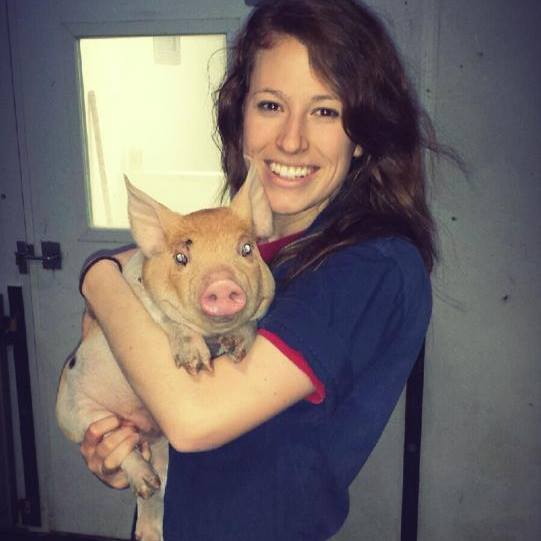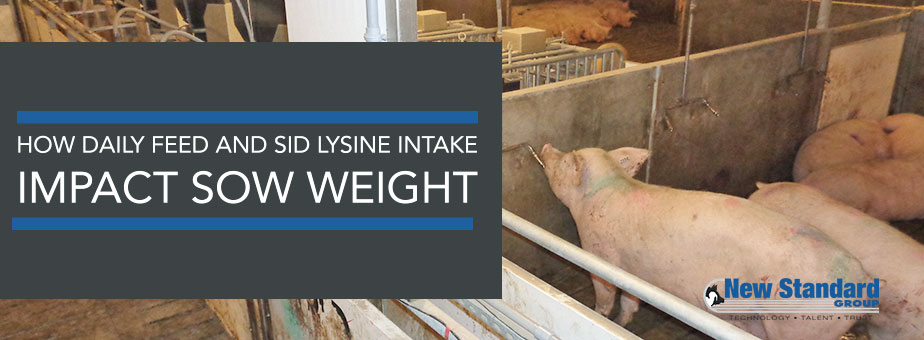We are all aware of the pressure on producers to switch to group gestation pens, but making this transition is not an easy task. It is especially difficult when we hear horror stories and find research showing the problems that arise with feeding sows in loose pens. We want to put you at ease and tell you what it is like in a well-designed hog barn by busting some of the common myths you have probably heard about group sow housing.
Over the past 11 years, New Standard has designed, equipped, and continues to support nearly 60 group housing swine barns. Through these builds and remodels, we have had the pleasure of meeting and working with hundreds of brilliant producers, barn staff members, builders and managers. Without the input from the people who use the barns every day, our hog barn designs would not be as complete and efficient as they are today.
Data analysis in pig production has long been essential to making smart management decisions. Now as the industry moves to group sow housing, data is more important than ever. There is a common belief that you cannot track sows efficiently in open hog pen designs, but that is simply not the case. With the proper barn design and data management system in an open sow pen, you are able to track daily performance metrics much better than you could in a stall barn.
Although you are able to track sow performance much better in group sow housing barn, it takes a well-engineered hog pen design and data collection platform. With the proper system, such as the Velos platform used by Nedap, data really is money. You are able to catch performance issues earlier, and you are able to fine tune your operations to be as efficient as possible, saving you on feed and labor, as well as other operating costs.
If you're a pork producer, changing your barn's sow gestation pen design is not just a complicated process, it can also be a big investment. For this reason many producers put off making changes, even when they know that the new designs are superior and will someday be the norm. Committing to a new setup for your gestating sows isn't always an easy pill to swallow, but there are some reasons why you might want to consider doing it now rather than later.
Legislation around the world is requiring farmers to convert to loose sow housing. As we transition our hog barn designs, we are all learning from one another on how to make group housing more efficient and productive than gestation stall barns. Through our learning and dozens of conversions and new builds, we have found Nedap Electronic Sow Feeding equipment and proper gestation pen design to be the key factors in a successful loose sow housing facility.
This is often one of the first questions we are asked when talking through an ESF group gestation pen design. We completely understand the importance of this question because as producers, you have to monitor your overhead and operating costs closely in order to turn a profit. While there is significant importance behind this question, we challenge everyone to not only focus on the costs in your barn, but also the impact each aspect of your barn has on your production totals. Learn more on how to calculate the value each of your ESF stations add to your production.
Putting together a pig barn design is a long and detailed process for you as a producer. You have to weigh your different housing options and how each will affect your production. If you decide to build a barn with Electronic Sow Feeding equipment, it is important to know how the design of your system will affect your animals, your barn staff, and your everyday operations. Proper ESF design will improve efficiency and production while a poor pig barn design will result in a disastrous investment.
I am a graduate student at Kansas State University studying swine nutrition, and I was given the opportunity to conduct research on a sow farm containing NEDAP electronic sow feeders for group gestation pens. Conducting research involving gestating sows can be a daunting task, however with all of the advancements in technology, specifically the use of ESFs, doors are being opened into areas of gestating sow research that have never been explored before.




